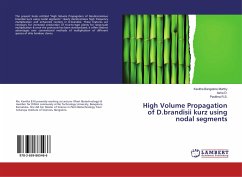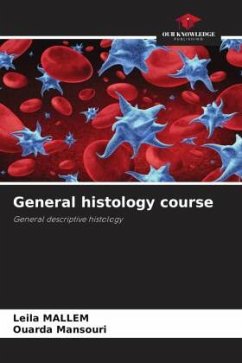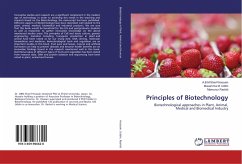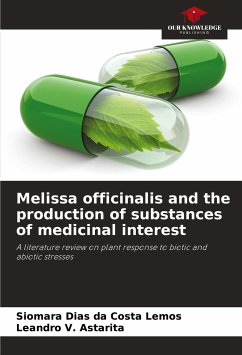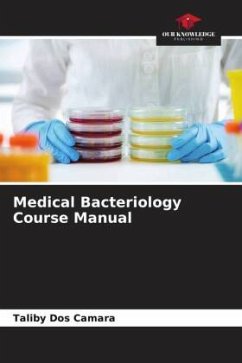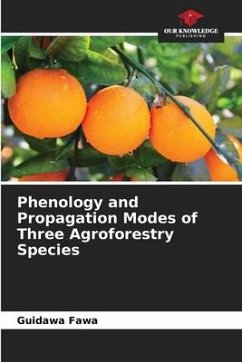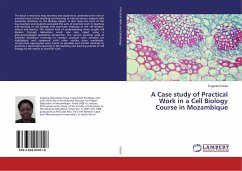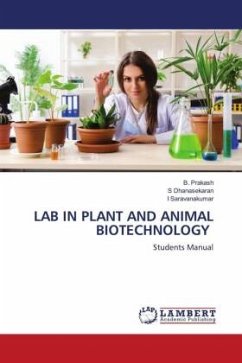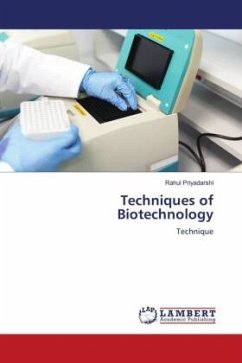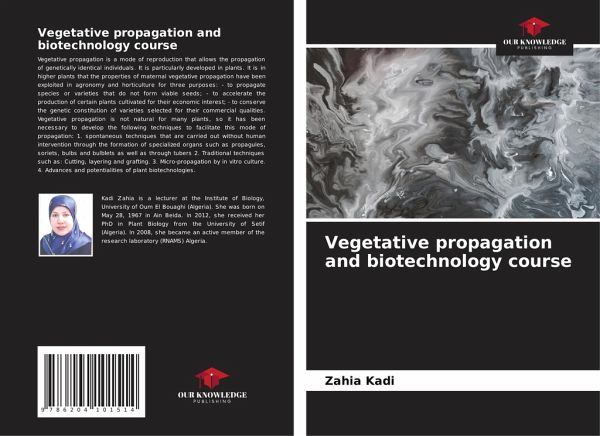
Vegetative propagation and biotechnology course
Versandkostenfrei!
Versandfertig in 6-10 Tagen
36,99 €
inkl. MwSt.

PAYBACK Punkte
18 °P sammeln!
Vegetative propagation is a mode of reproduction that allows the propagation of genetically identical individuals. It is particularly developed in plants. It is in higher plants that the properties of maternal vegetative propagation have been exploited in agronomy and horticulture for three purposes: - to propagate species or varieties that do not form viable seeds; - to accelerate the production of certain plants cultivated for their economic interest; - to conserve the genetic constitution of varieties selected for their commercial qualities. Vegetative propagation is not natural for many pl...
Vegetative propagation is a mode of reproduction that allows the propagation of genetically identical individuals. It is particularly developed in plants. It is in higher plants that the properties of maternal vegetative propagation have been exploited in agronomy and horticulture for three purposes: - to propagate species or varieties that do not form viable seeds; - to accelerate the production of certain plants cultivated for their economic interest; - to conserve the genetic constitution of varieties selected for their commercial qualities. Vegetative propagation is not natural for many plants, so it has been necessary to develop the following techniques to facilitate this mode of propagation: 1. spontaneous techniques that are carried out without human intervention through the formation of specialized organs such as propagules, soriets, bulbs and bulblets as well as through tubers 2. Traditional techniques such as: Cutting, layering and grafting. 3. Micro-propagation by in vitro culture. 4. Advances and potentialities of plant biotechnologies.



